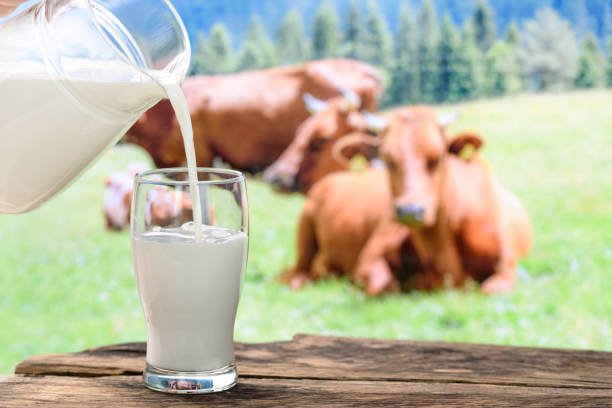The Ultimate Guide to Device Classification, FTC Regulation, FSVP
Introduction
Navigating the intricate world of product classification, regulation, and registration can be daunting, especially for those in the device and pet food industries. This guide aims to demystify the processes surrounding device classification, FTC regulation, FSVP (Foreign Supplier Verification Program), and pet food registration. By understanding these crucial aspects, businesses can ensure compliance, quality, and consumer safety while bringing their products to market successfully.
1. Understanding Device Classification
1.1 What is Device Classification?
Device classification refers to the categorization of medical devices based on their intended use and potential risks. The FDA classifies medical devices into three main classes: Class I, Class II, and Class III, with Class I being the lowest risk and Class III being the highest.
1.1.1 Importance of Device Classification
Understanding the classification of medical devices is essential for regulatory compliance and determining the level of controls necessary to ensure their safety and efficacy.
1.1.2 Regulatory Requirements for Each Class
Each class of medical device is subject to different regulatory requirements, with Class III devices requiring the most stringent controls and pre-market approval.
2. FTC Regulation in Product Marketing
2.1 What is FTC Regulation?
FTC (Federal Trade Commission) regulation encompasses laws and guidelines that govern advertising, marketing, and consumer protection in the United States. It ensures that businesses engage in fair and truthful practices when promoting their products or services.
2.1.1 Key FTC Regulations for Businesses
Businesses must adhere to FTC regulations regarding deceptive advertising, endorsements, consumer privacy, and labeling to avoid legal repercussions and maintain consumer trust.
2.1.2 Compliance Strategies for Businesses
Implementing transparency, honesty, and clear communication in marketing efforts is crucial for FTC compliance and building a positive brand reputation.
3. Foreign Supplier Verification Program (FSVP)
3.1 Understanding FSVP
FSVP is a program mandated by the FDA to verify that imported food products meet U.S. safety standards and are produced under sanitary conditions. It places the responsibility on importers to ensure the safety of the food they bring into the country.
3.1.1 Requirements for FSVP Compliance
Importers must develop and implement an FSVP that includes various activities such as hazard analysis, supplier verification, and corrective actions.
3.1.2 Benefits of FSVP
Compliance with FSVP not only meets regulatory requirements but also enhances food safety, reduces risks of foodborne illnesses, and improves consumer confidence in imported food products.
4. Pet Food Registration
4.1 Importance of Pet Food Registration
Pet food registration is necessary to ensure the safety and nutritional adequacy of pet food products before they enter the market. It involves submitting detailed information about ingredients, formulations, and labeling to regulatory authorities.
4.1.1 Regulatory Bodies and Requirements
Different countries have their own regulatory bodies and requirements for pet food registration, with the FDA overseeing this process in the United States.
4.1.2 Steps to Register Pet Food Products
The registration process typically involves completing forms, providing product information, and paying applicable fees to obtain approval for pet food products.
FAQs (Frequently Asked Questions)
Q: What are the main factors that determine medical device classification?
A: Medical device classification is primarily based on the device’s intended use, its potential risks to users, and the level of control necessary to ensure safety and efficacy.
Q: How can businesses ensure compliance with FTC regulations?
A: Businesses can ensure compliance with FTC regulations by maintaining transparency, honesty, and clear communication in their marketing practices, avoiding deceptive advertising, and adhering to guidelines on endorsements and consumer privacy.
Q: What is the role of importers in the FSVP?
A: Importers are responsible for developing and implementing an FSVP to verify that imported food products meet U.S. safety standards, including conducting hazard analyses, verifying suppliers, and taking corrective actions when necessary.
Q: Why is pet food registration important?
A: Pet food registration is important to ensure the safety and nutritional adequacy of pet food products before they are sold to consumers, helping to protect pets from potential health risks and ensuring compliance with regulatory standards.
Q: Who oversees the pet food registration process in the United States?
A: The FDA (Food and Drug Administration) oversees the pet food registration process in the United States, ensuring that pet food products meet safety and labeling requirements.
Q: What are the key benefits of complying with FSVP requirements?
A: Complying with FSVP requirements not only meets regulatory standards but also enhances food safety, reduces the risk of foodborne illnesses, and builds consumer confidence in imported food products.
Conclusion
In conclusion, device classification, FTC regulation, FSVP, and pet food registration are critical aspects of bringing safe and compliant products to market. By understanding these processes and ensuring compliance with regulatory requirements, businesses can maintain consumer trust, safeguard public health, and achieve success in the device and pet food industries.







